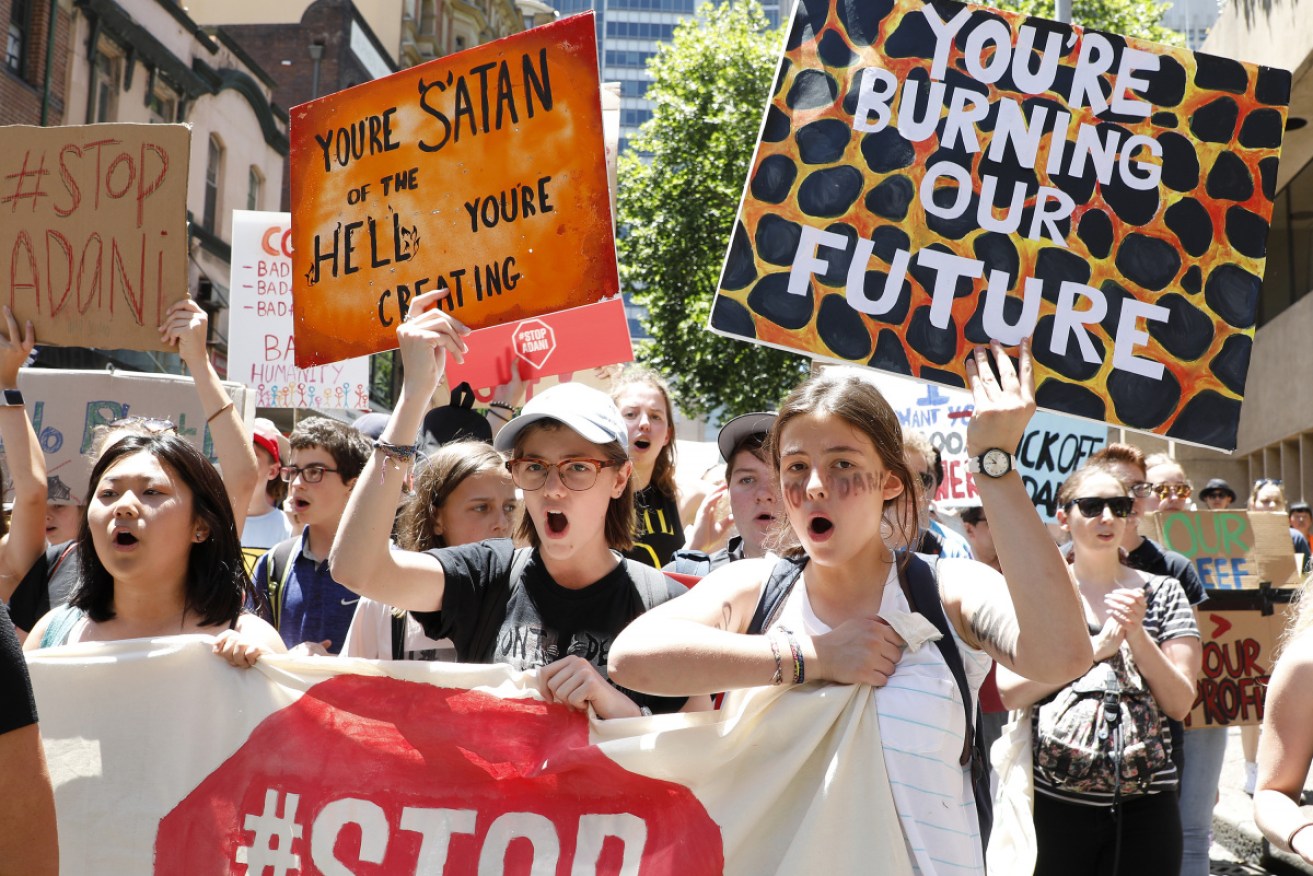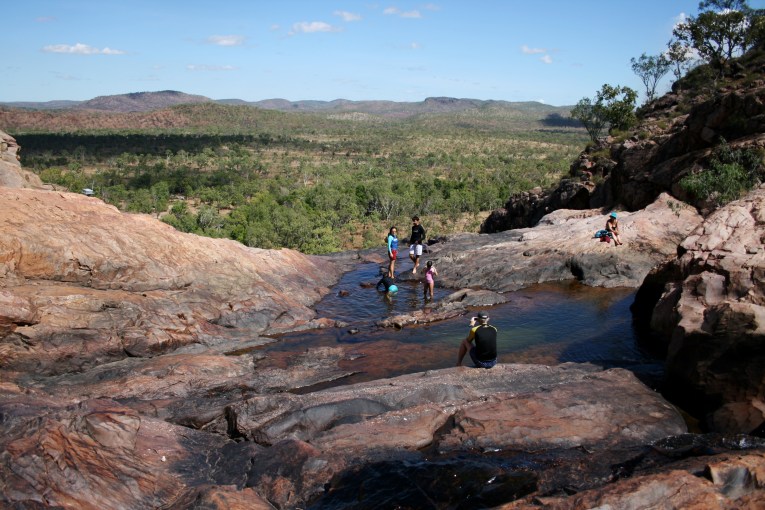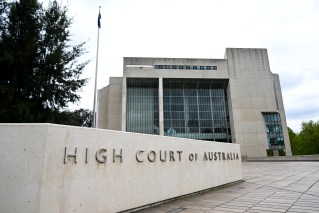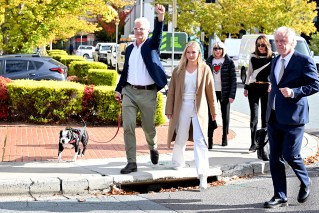Thousands of students to march to demand climate action


Evelyn Gawlas, 15, and Via Hannell, 15, joined the first student march in Sydney in December. Photo: AAP
Thousands of Australian students are expected to join a school strike to push for action on climate change on Friday.
University and school students will march in 55 Australian towns and cities, part of a global movement of action in more than 80 countries.
Among them will be 13-year-old Harley Hickey from Walgett, in northern NSW.
“I see the temperatures reaching 50 degrees during summer in my community. We have two rivers in Walgett – the Barwon and Namoi River – but both are dry. No water, means no life,” she said.
“A lot of towns along these rivers are suffering because of our government’s bad decisions … I’m living and seeing my future disappear before my eyes.
“That’s why six of us from Walgett are travelling to Sydney to strike for climate action now.”
This Friday the world is coming together and we are going to show dinosaurs like @ScottMorrisonMP what the future needs to look like! #climatestrike #ss4c pic.twitter.com/rOEWR5tnPw
— School Strike 4 Climate Australia (@StrikeClimate) March 13, 2019
The student climate strikes are part of a global movement inspired by Swedish teenager Greta Thunberg, and follow earlier marches in December 2018.
The mass student marches will call on politicians to stop the Adani coal mine, ban new fossil fuels, and power Australia with 100 per cent renewable energy by 2030.
The call to skip school for a protest march has attracted the attention of politicians from all sides.
On Wednesday, NSW opposition leader Michael Daley – who faces a state election on March 23 – described the striking students as “future leaders”.
“They don’t have a microphone and they don’t have money like the big end of town but they do have a right to protest,” he said.
“I support these young people and their action.”
But on Thursday, NSW Education Minister Rob Stokes took aim at Mr Daley, saying students were required by law to attend school on school days. By walking out of classes, they were being “robbed” of education opportunities, he said.
“The first part of leadership for a political representative is to uphold the law, and he [Mr Daley] is failing to do that,” Mr Stokes told Sydney’s 2GB radio.
Former federal education minister and environmental activist Peter Garrett also tweeted his support of the students on Thursday.
“The patronising idiocy of climate deniers is contemptible,” he said. “I applaud the many courageous young Australians who will be out in force tomorrow.”
“As adults, we have a shared responsibility to encourage our young people to attend school."#nswpol https://t.co/6WSpxtAXP4
— 2GB Sydney (@2GB873) March 13, 2019
However, in lead-up to last December’s march, Prime Minister Scott Morrison said “what we want is more learning in schools and less activism in schools”.
And Resources Minister Matt Canavan said, “the best thing you’ll learn about going to a protest is how to join the dole queue”.
The climate strike also has mixed support among education institutions. University of Sydney vice-chancellor Michael Spence has given permission for students and staff to attend.
“Climate change is undoubtedly one of the most important and complex challenges facing humanity,” Mr Spence wrote an email to organisers on Monday.
“The university will not hinder any individuals expressing an opinion or penalise any staff or students who join the rally on Friday. We will ensure that all staff are aware of this.”
But the principal of Siena College, a Catholic girls’ school in Melbourne, wrote to students and parents last week warning that striking students could receive a zero if they missed official tests and assignments on the day.
“We acknowledge the students’ right to give voice to their very genuine concerns regarding the federal government’s record on climate change,” principal Gaynor Robson-Garth wrote.
“Attendance at the strike will however be an ‘unapproved’ absence from school.”








